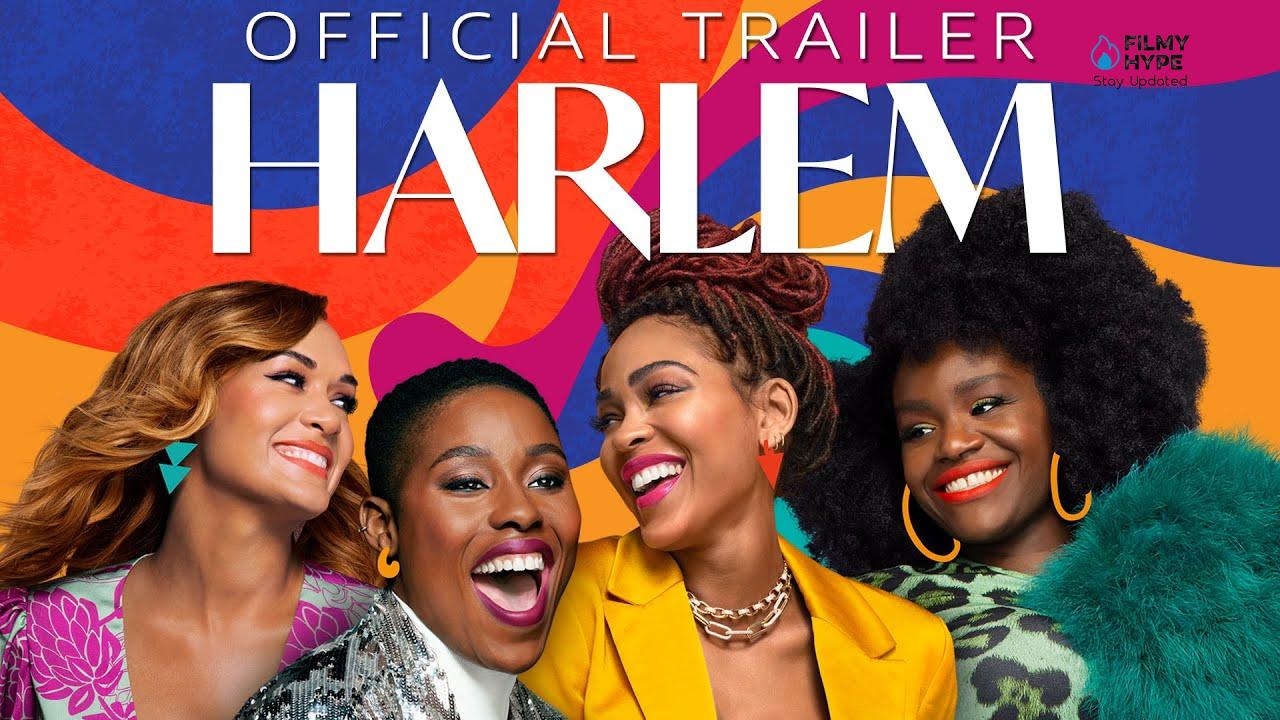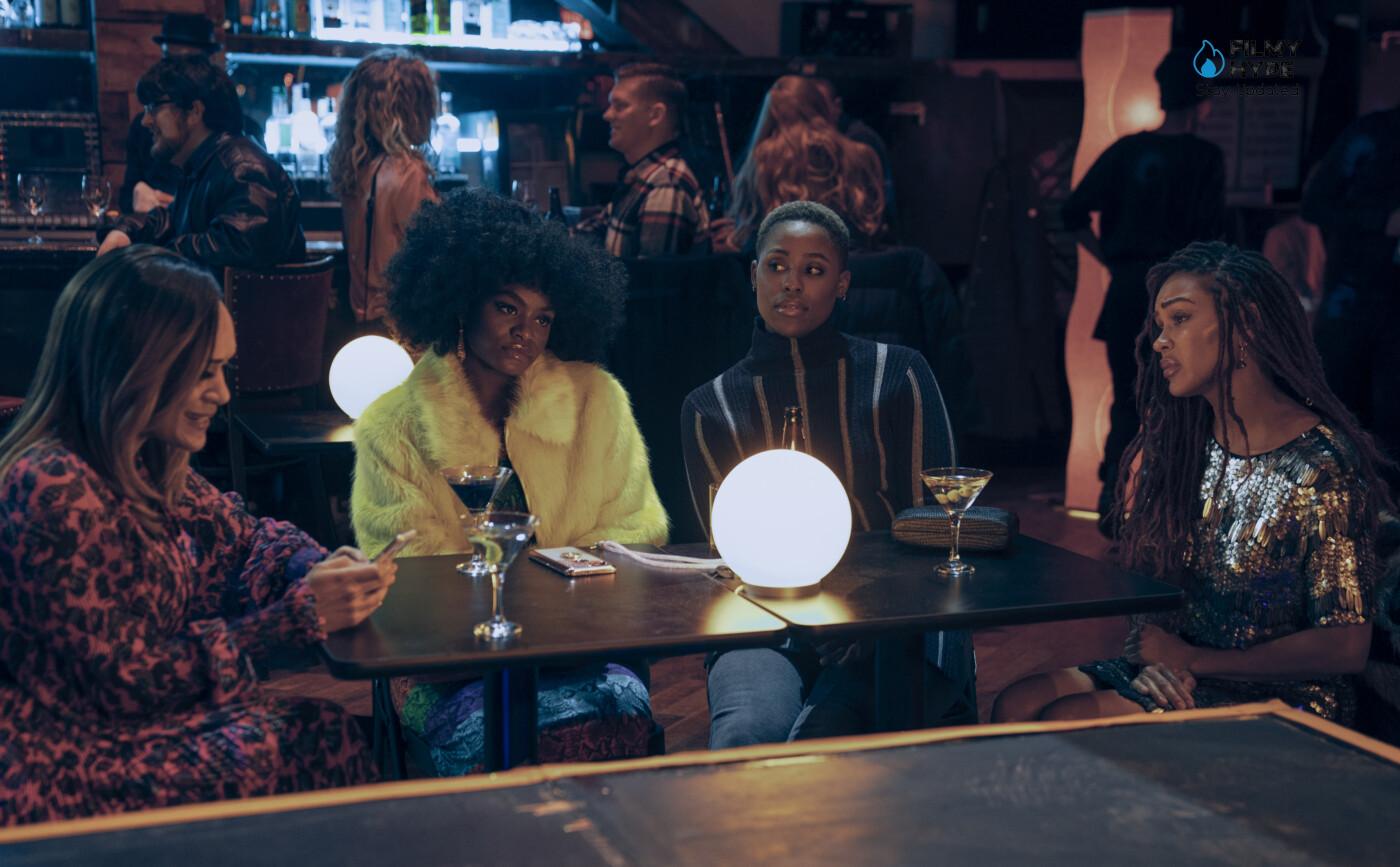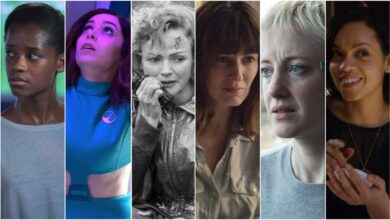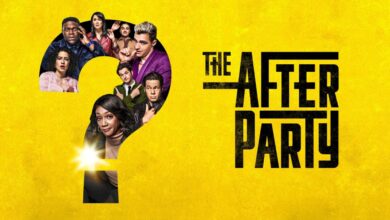Harlem Review: About Ambitions, African American Culture And Women’s Empowerment | Amazon Prime Series
Star Cast: Meagan Good, Grace Byers, Jerrie Johnson
Directors: Linda Mendoza, Neema Barnette, Malcolm D. Lee, Stacey Muhammad
Streaming Platform: Amazon Prime (click to watch)
Filmyhype Ratings: 3.5/5 (three and half star)
Harlem is the new comedy series produced and distributed by Amazon Prime Video from 3 December, of which we offer you our review. Written and conceived by screenwriter Tracy Oliver, the series takes the structure and rhythm of the romantic comedy in the style of Sex and the City, setting it in contemporary Harlem. The protagonists are four girls with problems typical of their age, to which are added the difficulties that come with being African American, female and queer. The cast boasts the name of Whoopi Goldberg along with Maegan Good in the role of Camille, Grace Byers in that of Quinn, Shoniqua Shendaiwho plays Angie and, finally, Jarrie Johnson who gives the face to Tye.

Harlem Review: The Story
The Harlem neighborhood is the backdrop to the lives of four young women struggling with work and sentimental problems and who are confronted daily with their identity as black women. The quartet is ambitious and tenacious, but full of contradictions. Camille is a cultural anthropology professor expert in courtship across cultures, but her love life is far from rosy. Tye is the creator of a popular dating app tailored for the queer community. But she herself is unable to build a solid relationship with any of the girls she dates, due to strong insecurity.
Quinn owns a boutique where she sells her creations and aspires to become a well-known designer. But business is not going as it should and she is forced to ask her mother for continuous loans to avoid filing for bankruptcy. Rounding out the quartet is Angie, a cheerful and outgoing girl who dreams of being a singer. In the name of art she rejects jobs that don’t seem up to her, even though she lives in Quinn’s apartment.
Harlem Review and Analysis
Heir to a clearly identifiable format, Harlem takes up the peculiarities of a very specific sub-genre that became famous in the nineties and never left our screens. The plots have the same connection: a group of young women share similar problems on the working and sentimental level, but also the ambition and friendship that are the elements that bind them most.
Chief among them is Sex and the City which many have been inspired by, and Harlem is no exception. But Tracy Oliver takes a different path. In the aforementioned Sex and the City and similar series that followed, such as Ally McBeal and the more contemporary Gossip Girl, the protagonists are white, straight and wealthy. The focus – especially in Sex and the City and which is one of the components that made it so famous – is not so much on the daily life of the protagonists, but on female self-determination.
Harlem retraces the same steps, adding the ethnic identity of the group of characters and the neighborhood in which they live to the equation. Harlem is in fact the African-American cultural hub of New York, thanks to the density of the black community which has been increasing ever since the 1930s.

Each episode begins with Camille’s narrative voice who often dwells on the cultural and sociological differences between the various ethnic groups and on how women are seen in contemporary society. Camille in particular is a feminist activist, but she is often underestimated as her role as a popularizer occurs especially through social media. Tye is introduced as she discusses not only the validity of her app, but why it needs a safe space for the LGBTQ + community. Angie openly denounces the micro-attacks that the black community faces every day and how it is represented.
Together with the format on which Tracy Oliver is based, the work of the screenwriter is very close to another group of TV series. Especially in recent years, the US schedule is populated by narratives designed especially for an African American audience. It is not a new movement, in fact blaxploitation was born in the seventies and never died. The blaxploitation includes those media products written, interpreted and conceived by black artists for an African American audience. In addition to entertaining, many of these films and TV series have the clear objective of social denunciation. Among the best known names are Jordan Peele – directly mentioned also in Harlem – and Michaela Coel thanks to her I May Destroy You. Angie, Camille, Tye and Quinn are four African American girls who feel a lot about the black community they were born into and are part of.
The series is dotted with episodes in which they denounce systematic racism, micro-attacks and their link with African American history. A sense of community that derives from expecting ever greater visibility that has been denied for a long time. The target audience is purely American and the series, as already mentioned, is aimed directly at an African American audience. This might push a different audience away, but the fluid writing and comedy tone allows anyone to enjoy the viewing. However, without treating the main arguments superficially, on the contrary. Oliver’s smartest and most interesting move is to have used the language of comedy to talk about deeper themes. To do this, she also made use of directing which often overturns many widely used dynamics. Usually it is the female body that is objectified, in Harlem it is the male body that undergoes that treatment.
The Final Words
Harlem is a full-fledged modern day series that wants to speak to young people and highlight the issues of millennials. Especially related to the workplace. The only one with a secured job is Tye, who fought for it. Camille struggles not to be an assistant anymore, but to have the tenured professorship. Angie agrees to go to a musical she doesn’t want to work on. Quinn has a wealthy mother behind her who allows her to keep the shop, but the cost is to be told that hers is not a good job. Self-determination is the real key to the Tracy Oliver series. Each character represents a typical difficulty of millennials. Added to these are the romantic dramas and the fear of not being able to find an ideal partner. Or, on the contrary, let it slip away.
Although the topics covered are colorful and not the lightest, Harlem remains an entertainment series. The comedy part dominates the more serious themes, which however are not diminished. The city full of clubs and events in which the four friends participate, the pop colors and a fun and fluid writing make the series easy to use. Only in the final part is the rhythm lost, and the plot proceeds by expedients that are not entirely convincing.





